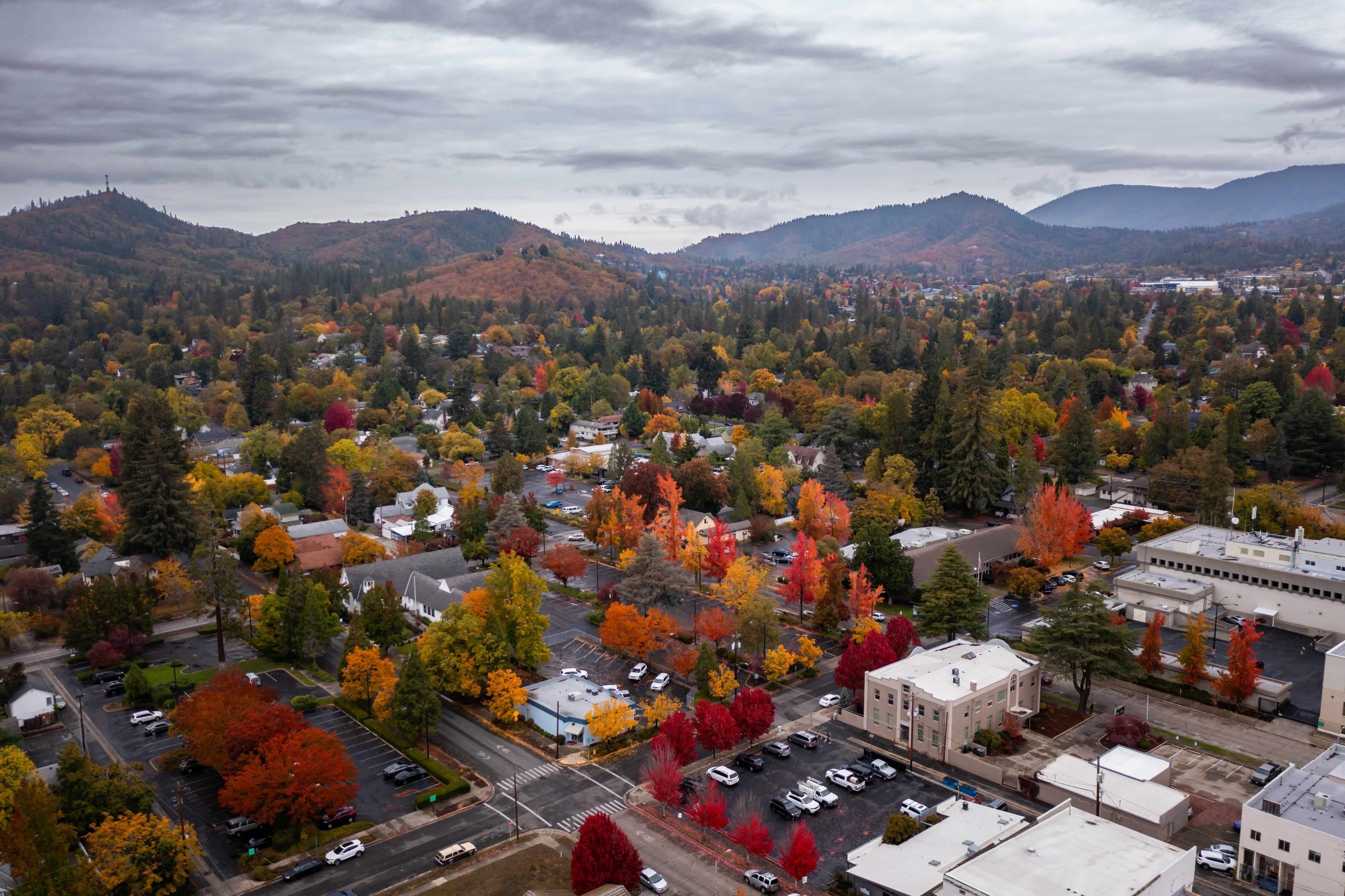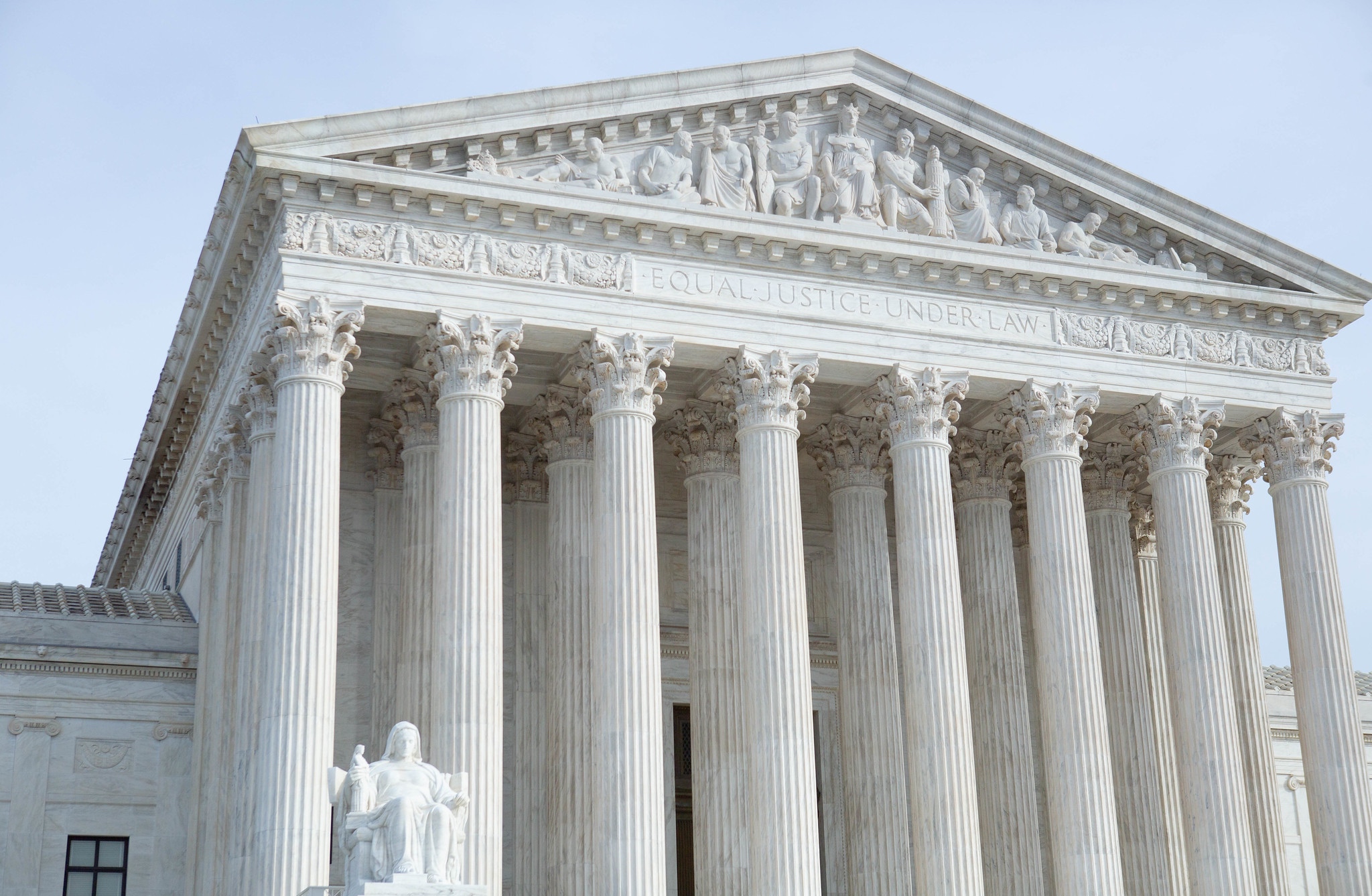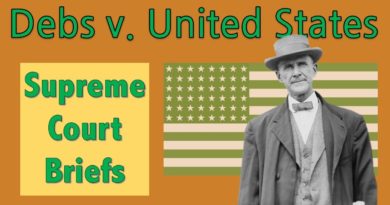Supreme Court to hear case on criminal penalties for homelessness
CASE PREVIEW
on Apr 19, 2024
at 2:00 pm
Grants Pass, Ore. has enforced ordinances that bar the use of blankets, pillows, and even cardboard boxes while sleeping within the city. (Manuela Durson via Shutterstock)
The Supreme Court will hear oral argument on Monday in a case that one legal expert has called the “most important Supreme Court case about homelessness in at least 40 years.” The issue before the court is the constitutionality of ordinances in an Oregon town that bar people who are homeless from using blankets, pillows, or cardboard boxes for protection from the elements while sleeping within the city limits. Defending the ordinances, the city contends that the laws simply bar camping on public property by everyone. But the challengers in the case counter that the ordinances effectively make it a crime to be homeless in the city.
The court’s ruling could have a significant impact not only in the small city of Grants Pass, Oregon, whose ordinances are being challenged, but in cities across the United States, where similar laws have proliferated. The “camping ban” model of legislation has been adopted more widely in recent years as state and local governments try to grapple with double-digit increases in the number of people who are homeless. Data released by the U.S. Department of Housing and Urban Development indicated that more than 600,000 people in the United States were homeless on a single night in 2023.
The dispute before the court on Monday comes to the justices from Grants Pass, a city of just under 40,000 people in southwestern Oregon. With a vacancy rate of one percent and essentially no affordable housing, the city has as many as 600 people experiencing homelessness. The chief operating officer of a nonprofit in the county where the city is located that serves people who are homeless said in a declaration submitted in the case that almost all of the people who are homeless and live in the city do so involuntarily. “There is simply no place in Grants Pass for them to find affordable housing or shelter. They are not choosing to live on the street or in the woods,” the nonprofit COO said.
At a 2013 city council meeting to discuss possible solutions to the city’s homelessness problem, the city council president suggesting “mak[ing] it uncomfortable enough for [homeless people] in our city so they will want to move on down the road.” The city decided to increase enforcement of ordinances that bar the use of blankets, pillows, and even cardboard boxes while sleeping within the city.
The ordinances impose a $295 fine for violations; the fine increases to $537.60 if it is not paid. After two citations, police in Grants Pass can issue an order that bans the individual from city property; a violation of that order exposes the individual to a conviction on criminal trespass charges, which carry penalties of up to 30 days in jail and a $1250 fine.
In 2018, the U.S. Court of Appeals for the 9th Circuit ruled in Martin v. City of Boise that the Eighth Amendment’s ban on cruel and unusual punishment bars the imposition of criminal penalties for sitting or sleeping outside by people experiencing homelessness who do not have access to shelter.
Shortly after the court’s ruling in the Boise case, John Logan and Gloria Johnson (along with Debra Blake, who has since died) went to federal court in Oregon to challenge the constitutionality of the Grants Pass ordinances on their own behalf and on behalf of others who are involuntarily homeless in Grants Pass. Logan has been homeless at times in the city for over a decade and has sometimes slept in his truck outside the city so that he was not ticketed and fined for sleeping in the truck in the city. After she was evicted and could not find other housing that she could afford, Johnson slept in her van, where the ordinances were enforced against her on “dozens of occasions.”
A federal district court issued a permanent injunction that barred the city from enforcing the ordinances at all at night and under some circumstances during the day. Relying on the Martin case, a three-judge 9th Circuit panel upheld that ruling; the full court of appeals denied the city’s request to rehear the case by a vote of 14-13. The city came to the Supreme Court, which agreed earlier this year to weigh in.
In its brief at the Supreme Court, the city insists that the Eighth Amendment regulates cruel and unusual methods of punishment; it does not regulate the substance of criminal offenses. “Modest” punishments like fines and short jail terms are not cruel and unusual, the city argues. The Eighth Amendment, the city contends, was modeled on the English Declaration of Rights, which was in turn “a reaction to cruel sentencing practices under King James II.” Indeed, the city notes, the amendment’s ban on “excessive fines” in another clause indicates that fines may be imposed – they simply may not be excessive. Otherwise, the excessive fines clause would not be necessary.
In 1962, in Robinson v. California, the city continues, the Supreme Court held that the Eighth Amendment’s ban on cruel and unusual punishment prohibited the state from making it a crime simply to be a drug addict in California, even if there was no proof that the defendant had ever used drugs in the state. That is, it barred the criminalization of status (being a drug addict), but not conduct (possession or use of drugs). But, the city notes, the court explained that the state could still make it a crime for addicts to engage in conduct related to drugs – buying, selling, using, or possessing them.
The court of appeals, the city argues, wrongly “stretched Robinson’s narrow holding that” the cruel and unusual punishments clause “forbade punishing a particular status, decoupled from any conduct, into a sweeping constitutional rule that prohibits any punishment for purportedly involuntary acts that flow from a status.” But, the city contends, its ordinances pass muster under Robinson because they do not make it a crime to be homeless in the city. Instead, they only apply when someone has committed an affirmative act that “society has an interest in preventing” – in this case, “occupying a campsite on public property.”
The city tells the justices that the 9th Circuit’s rulings in the Boise case and this one “have proved practically unworkable.” “The lack of constitutional foundation” for the decisions, it contends, “has thrust federal courts into the inappropriate role of legislating homelessness policy and yielded a host of complex rules that micromanage local governments on that pressing issue.” The city cites the difficulty of determining, for example, whether someone who is experiencing homelessness is doing so voluntarily – for example, whether someone has declined to stay in a shelter because her dog would not be able to stay with her – as well as the difficulty of determining how many beds are available each night and how many people need shelter. As a result, the city cautions, encampments of people who are homeless “have multiplied unchecked throughout the West because generally applicable restrictions on public camping no longer play their critical deterrent role, resulting in spikes in violent crime, drug overdoses, disease, fires, and hazardous waste.”
The challengers push back sharply against city’s characterization of the ordinances at the center of the dispute and, by extension, the question before the justices. Although the ordinances “nominally prohibit camping,” they concede, the weather in Grants Pass is cold and rainy, so that anyone who does not have access to shelter must have a blanket to survive. As a result, they say, the real question before the court is whether the ordinances violate the Eighth Amendment’s ban on cruel and unusual punishment “by inflicting punishment on the City’s homeless residents for simply existing in the community without access to shelter.”
The court of appeals was correct, the challengers tell the justices, in holding that the answer to that question is “yes.” The Supreme Court’s ruling in Robinson easily disposes of this case, the challengers contend, because – just like the state law in Robinson – the city’s ordinances punish people who are involuntarily homeless based on their status.
Nothing about the lower court’s ruling, the challengers maintain, infringes on the city’s power to address the problem of homelessness. Indeed, they say, the district court acknowledged that the city retains the “broad power” to do so, “including whether to offer shelter options or other social services, whether to restrict when and where homeless residents may sleep, and whether to prohibit tents and clear encampments.” The city can also continue to enforce its health and safety laws, including laws that restrict litter, bar the obstruction of roads, and prohibit the possession of drugs. “But just as California crossed the constitutional line when it criminalized simply being in the state while having a narcotic addiction,” the challengers emphasize, “punishing people for existing in the community without shelter is cruel, unusual, and impermissible under the Punishments Clause.”
The $295 fine per violation increases to over $500 when not paid – which, the challengers say, is “devastating,” particularly when the increase is almost an inevitability when someone is already experiencing homelessness because they cannot afford shelter. Police can fine someone experiencing homelessness repeatedly in a short period of time: Debra Blake, one of the original plaintiffs in this case, was fined three times in one morning and, by March 2020, owed more than $5,000 in fines. Such a scheme can perpetuate a “cycle of homelessness and poverty,” the challengers add. And when people experiencing homelessness accrue unpaid fines, those fines can lead to the suspension of their driver’s licenses and lower credit scores, which can in turn make it more difficult for them to obtain jobs and housing.
In a “friend of the court” brief, the Biden administration agrees that the core of the 9th Circuit’s decision in the Boise case is sound. Cities, U.S. Solicitor General Elizabeth Prelogar writes, cannot make it a crime for people experiencing homelessness who do not have access to shelter to reside within their limits at all. However, Prelogar stresses, cities can enforce restrictions to ensure the health and safety of their residents, including by prohibiting tents, stoves, and fires in public spaces and by closing encampments.
At the same time, the Biden administration parts ways with the challengers by arguing that the principle outlined in Robinson requires an individualized inquiry into the specific circumstances of someone who is homeless. It is not enough, the Biden administration suggests, for courts to conclude that someone is involuntarily homeless and therefore cannot be charged with violating the ordinances simply based on the ration of people experiencing homelessness to the number of beds available in shelters. Such an approach, the Biden administration posits, “would alleviate many of the practical concerns that” the city and its supporters “have expressed about the effects of the court of appeals’ decision in Martin and this case.”
This article was originally published at Howe on the Court.






